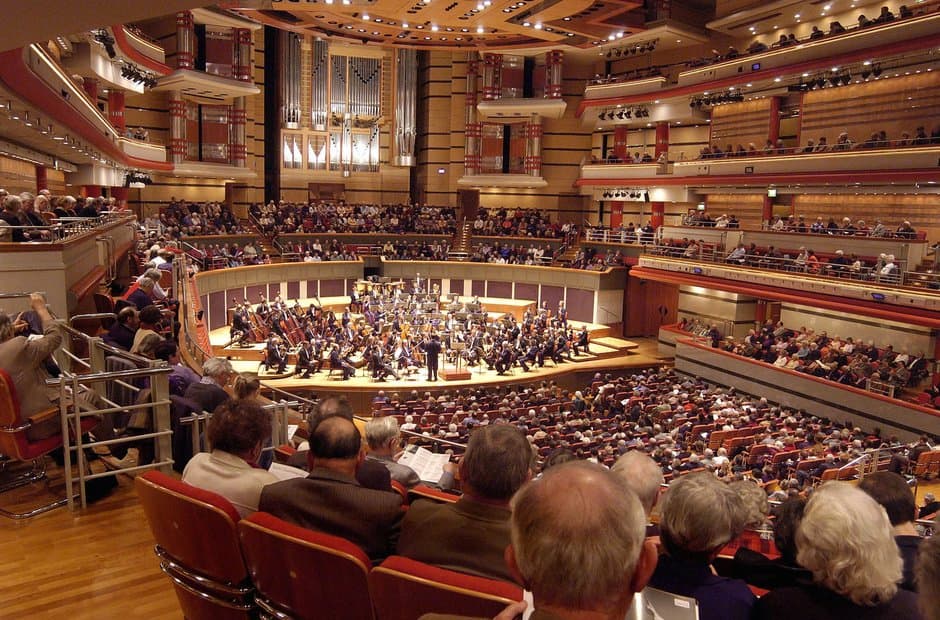
Stephen Hough, mid-performance
Perhaps the primary motivation is the desire to share one’s music with others: in discussing the question “Why Perform?” with musician friends and colleagues, the majority of respondents cited “sharing the music” as a significant motivator. Sharing music in concert celebrates common cultural values (identity, history) and performing can be regarded as a “cultural gift”, a gift to oneself and a gift to those who love to listen to music. It brings pleasure to performer and to audience – both in terms of pure “entertainment” and also the pleasures of intellectual stimulation and challenge, or being emotionally moved. Alongside this, performing gives voice to the human condition and the meaning of life, and examines and confronts shared values in ways which transcend spoken language. Through sharing in a musical performance, we can celebrate togetherness and common purpose.
Mozart: Piano Sonata No. 16 in C Major, K. 545, “Sonata facile” (arr. for 2 pianos, EG 113) Martha Argerich – Piotr Anderszewski
By performing the great works we share in something which is so much greater than ourselves, celebrating and appreciating brilliant human beings, like Mozart or Beethoven, Wagner or Mahler. Performing is a form of conservation or “curation”, by keeping these great works alive; it also looks after and inspires the next generation – musicians and concert goers.
On a more personal level, performing satisfies an inner, more selfish need – the need to be valued and appreciated, the need to impress, to be loved even. It gives us something to live for and to work towards. Performing is a very special form of self-expression and fulfillment, creating experiences that only exist “in the moment” of the performance and then resonate only in our individual and collective memories. A performance offers audience, and performer, a single, one-off interpretation of our “variation” on the piece, remembered and/or preserved only as that interpretation.
From a practical point of view, performing endorses and validates what we do in the practise room, and confirms that we have done our practising and preparation correctly. It holds the music up for scrutiny and offers insights about the music and the music-making process which simply cannot be obtained in the practice room, and keeps us in touch with that process from beginning to end. A successful performance demonstrates that we have practised deeply and thoughtfully, instead of simply note-bashing. Preparing music for performance teaches us how to complete a real task and to understand fully what is meant by “music making”. You never really demonstrate your technique properly until you can demonstrate it in a performance. Performing also teaches us how to communicate a sense of the music, to “tell the story”, and to understand what the composer is trying to say. It adds to our credibility and artistic integrity as musicians. And if you haven’t performed a piece, how can you say it is truly “finished”? For those of us who perform, at whatever level, it is probably the most challenging, and satisfying, thing we will ever do.
Stravinsky: Petrushka Scene 1 Russian Dance – Grigory Sokolov
Performances are unique occasions where we live in and for the moment. They should never be like rehearsals and for a succession of fleeting moments, the music lives beyond the written score.
In seriousness, making an audience feel something profound, moving or incredible never gets any less wonderful and it’s the best job in the world
– Heather Bird, double bassist





Musical scores are the ‘genomes’ of musical ‘animals’ left by various composers for the use by orchestras (super-organisms) to’ breed ‘ the corresponding musical ‘animal’ every time they perform using them. Bach ‘genomes’ breed Bach ‘animals’, Beethoven’s breed Beethoven ‘animals’ and so on.
Boghos L. Artinian MD